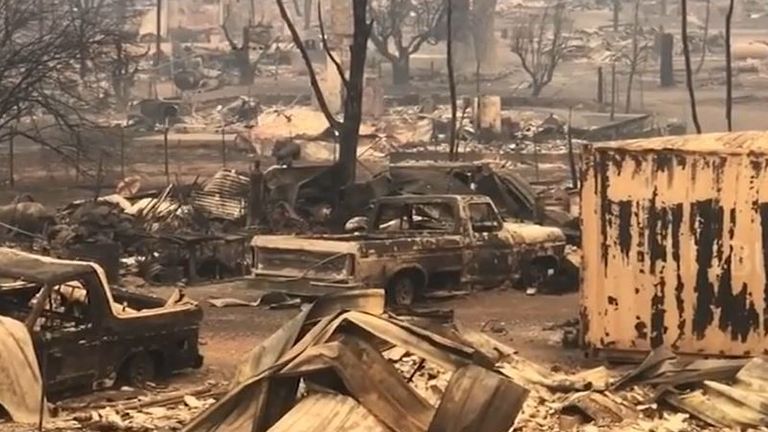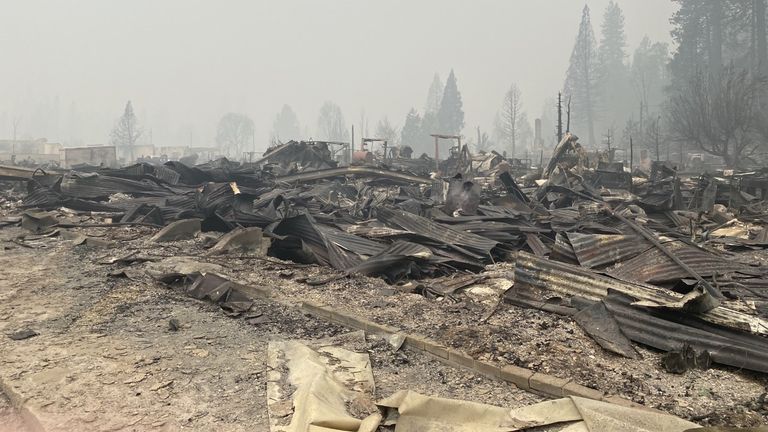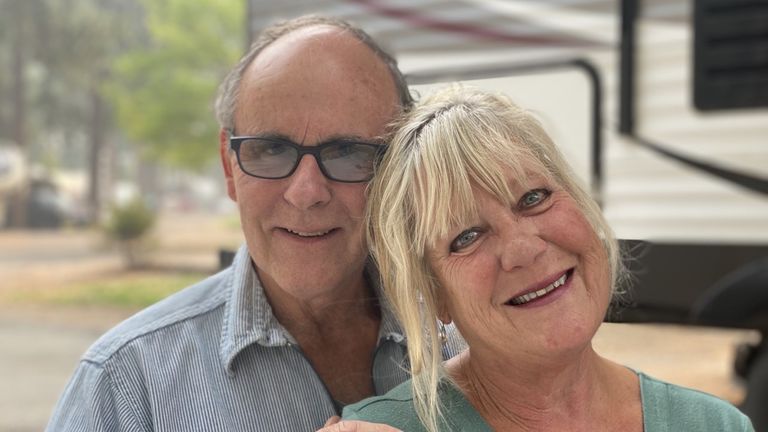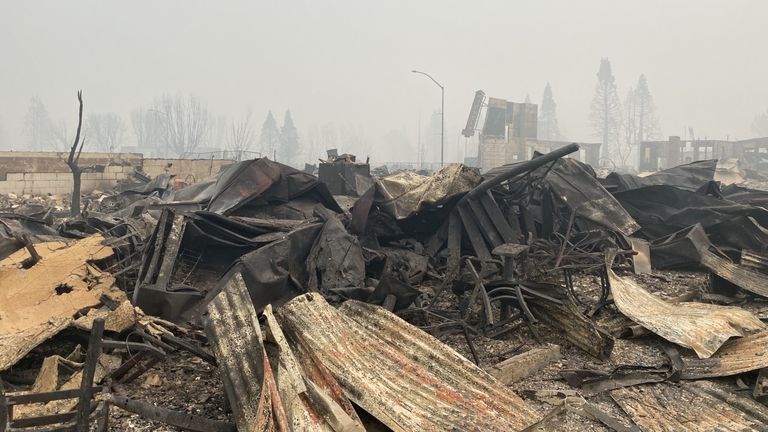It is the completeness of the destruction in this small town that hits you first.
We’d seen the images and we’d spoken to some of the evacuees, but only by being here is it possible to absorb the enormity of it all. There is almost nothing left.
Greenville, California: population 1,000; swept away in the largest single forest fire this state has ever seen.
The people whose town this was were almost all evacuated. They have their lives but have lost everything else.
Businesses and livelihoods are gone and with them, memories and dreams.
The local restaurant is only recognisable by the tables and chairs still set. The town’s offices are marked just by their metal filing cabinets. And dotted chimney stacks are all that’s left of the town’s homes.
Beyond the starkness of all this, it is the silence that hits you. It’s beyond eerie.
How different it must have sounded as the fire swept through late last Wednesday night.
With this all around, you look for hope. And down the road, by some miracle, there was some.
One house survived unscathed; not a scratch, while all around the land is scorched.
It belongs to Sheri and Terry Wert.
The residents are not allowed back yet, and honestly, most won’t want to see it. But it’s a boost certainly for these two.
The wonders of technology allowed us, via video call, to show them their little miracle.
“Oh my gosh. Terry, you gotta come…” Sheri says. “Oh, it looks perfect….”
She asks us to walk around the side of the house. Their son’s van is undamaged. So too is the chicken coop. The wind vane still turns.
Driving down the mountain, the smoke is thick for miles. The fire is still raging not far away.
The state governor, Gavin Newsom, has said it is the largest single fire in Californian history. More than 8,000 firefighters are working round the clock to contain it and at the moment they are not winning.
It’s an hour down to the town where the evacuees now wait. Terry and Sheri among them.
“Our home is still there and we are one of the very few lucky people and our heart just goes out to our community,” Sheri tells me.
We talk about what caused all this. It’s clear there are serious local concerns about forest management. Managed, controlled fires were stopped years ago and locals have long argued that a misguided fire suppression policy for almost a century has caused huge build-up on the forest bed.
It’s become a tinderbox and a warming climate is the catalyst for the fires.
“Now it’s an annual thing. It ruins every summer. It takes people’s homes away. It’s taken people’s lives,” Sheri says.
She explains that the summers are definitely getting warmer and the winters are less cold.
“We are not getting anywhere near the amount of rain, precipitation that we used to get, nor the snowpack, even up high,” she says.
What about the sustainability of places like Greenville, I ask. In the years ahead can it remain a viable place to live?
“This is our home,” Terry tells me. “We’ll rebuild Greenville.”
They have done it before. Way back in 1881, a fire destroyed the town. But still, the viability of communities like this feels ever more precarious and dependent on our relationship with the environment, both local and global.









